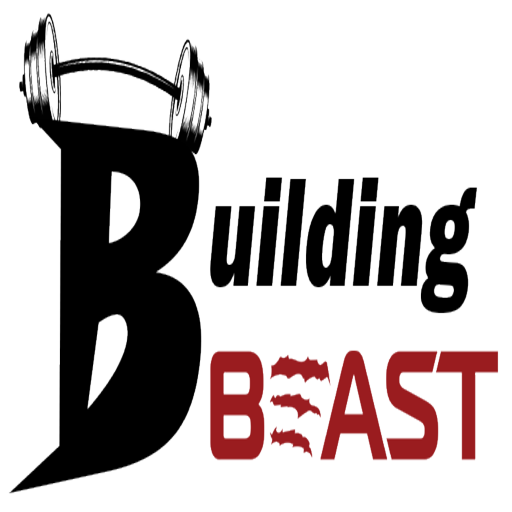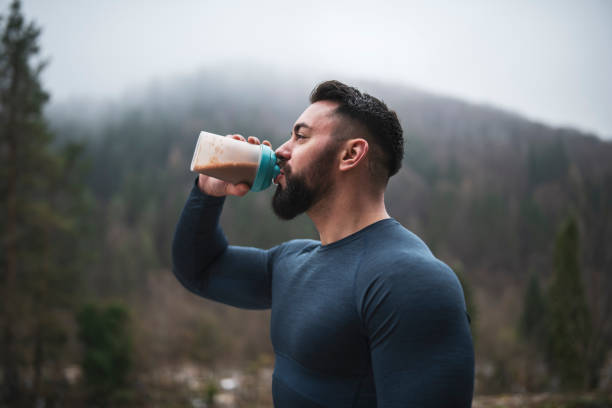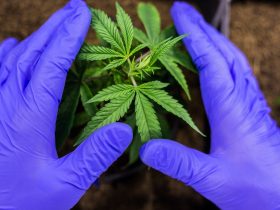All our childhood we’ve heard our teachers proclaim- ‘protein is the bodybuilding nutrient.’ Now, when we go to gyms and perform hardcore work out, we often correlate protein with the workout session and our bodybuilding capacity.
Protein is a macronutrient that is required for muscular growth. It is most typically found in animal products, but it can also be found in nuts and legumes. It is often associated with work out. Let us see why?
So basically, macronutrients are categorized into three sectors- proteins, fats, and carbohydrates. Today, we’re focusing on protein. Macronutrients supply energy in the form of calories. According to the University of Illinois McKinley Health Centre, the body needs vast amounts of macronutrients to maintain life. A single gram of protein has 4 calories in it. Protein accounts for around 15% of a person’s weight. With that specification, it is clear that protein is an essential component of the body.
Protein is formed up of amino acids, which are organic substances made up of carbon, hydrogen, oxygen, and sulfur. Amino acids act as the building blocks of proteins, and proteins, as we’ve always studied in previous grades, are further building blocks of muscle mass. All this is even tested and verified by the National Institute of Health(NIH).
“When proteins are broken down in the body, it aids metabolism by fueling muscle mass” Jessica Crandall, a registered dietician, nutritionist, certified diabetes educator, and national spokeswoman for the Academy of Nutrition and Dietetics shared her thoughts. ” It also aids in the maintenance of a healthy immune system. It aids in keeping you satiated. Protein has been found to have satiety effects in numerous studies”. Protein is also essential for muscle repair and growth.
The amount of protein we intake each day is a necessity to comprehend. The DRI, short for Dietary Reference Intake is 0.36 grams of protein per pound (0.8 gms/kg) of body mass. This information accounts for a standard amount of:
- 56 gms per day for a sedentary man
- 46 gms per day for a sedentary woman
Note that this is the minimum amount that your body needs to about deficiency of protein in your body. The optimal amount you need for your body is dependent on many factors.
Types of Protein
While protein is the most crucial nutrient of all, it’s a jack of all trades and is a master of many too. Protein has myriad privileges and functions to perform your body. One can get abundant protein in natural food substances like meat, fish, eggs, dairy, etc. There are different types of proteins to start from,
- Whey: it is primarily a dairy-based protein. It has all the essential amino acids and is rapid in absorption.
- Casein: again, a dairy-based protein, this one also has all essential amino acids. But, in contrast to whey, it gets absorbed quite slowly. Hence it is often taken before bed.
- Soy: the category changes here, it is a plant-based protein that also contains all the essential amino acids. Additionally, it is often associated with certain health benefits.
- Pea: a plant-based candidate again, this one contains low levels of cysteine and methionine, no essential amino acids.
- Rice: not going by the name, it is again a plant-based protein that has low levels of essential amino acid lysine.
- Hemp: this one runs faster in the race. Made from hemp, this protein has high levels of fibre and essential omega-3 and omega-6 fats.
These days protein shakes are well in demand. People prefer taking supplementary proteins to help their bodies gain muscle mass quickly. Taking supplementary protein can be in different forms. Here, we will be talking about protein shakes, made up of protein powder.
Protein powder has a lot of benefits or pick-up from. Not just gaining muscle mass, protein powder also aids in weight loss. Following are some of the benefits of protein shake.
- It helps in weight management by making the person feel fuller for a longer period. The person for not feel hungry frequently and thus avoids snacking and eating small portions in light of unconscious hunger. We often feel hungry for very short periods in a day and tend to eat plenty of unhealthy snacks. Having protein powder or protein shake helps reduce that hankering.
- Protein powder will additionally provide a push towards muscle growth.
- Recovery after exercises expedites taking protein powder. For this reason, a huge proportion of gym-going people take protein powder alongside work out and extensive exercise.
Protein has myriad benefits. The time or frequency of taking the protein is however mooted upon. There has been substantial research on the topic of taking protein shakes before or after a workout.
Regular exercise increases the requirement of protein in the body. People who hit the gyms, do hardcore workouts require more protein than average humans. Their needs increase extensively due to the nature of the muscle strength used. Also, they generously require protein for muscle repair after a workout.
The question- Should I drink a protein shake before or after a workout often comes up when someone starts exercising regularly. To answer this question, we have come up with this article to help you understand what works best for you and the mistakes you should avoid while taking protein shakes.
The Anabolic Window
Well, if you’re unaware of it, after a workout the period of about 30 minutes is termed as the anabolic window. There has been a buzz around saying that having a protein shake right after a workout is beneficial as the body muscles absorb the protein more efficiently since they act as a sponge.
There has been much debate on the topic of when to take a protein shake before or after a workout. In this case, after how long post-workout? However, recent research indicates that the anabolic window isn’t confined to the 30 minutes post-workout. One can take you protein shake before or after a workout, it does not affect how your muscles repair.
When To Take protein?
Although protein shakes have been majorly focused these days, people are bewildered about the requirement, amount, and the best time to take protein.
It is vital to comprehend that the best time of taking the protein is based on the health of an individual, fitness goals, and other factors. Consumption of protein shake at a particular time in a day can be highly variable from person to person. But, here are some of the indications to decide when you should consume a protein shake.
- Weight loss: while joining a gym, what most people look out for is, to lose those extra pounds. But the question, when to take protein shakes for weight loss remains intact. A high protein diet is useful in reducing the appetite, and increasing metabolism by some folds. The hunger hormone, ghrelin is reduced, and thus appetite dooms down. Going into the technicalities, it also proliferates the growth of appetite-reducing hormones such as Glucagon-like peptides (GPL-1), peptide YY(PPY), and Cholecystokinin (CCK).
Consuming a high protein yoghurt as a snack in the afternoon, as compared to snacking on chocolate or crackers, leads to a reduction in the appetite for dinner, even though all three contain the same proportion of calories, a study shows.
- Muscle building: learning from childhood, protein is a bodybuilding nutrient, no one should forget the primary function of proteins. Protein is the best nutrient to gain those muscles substantially. One needs to consume more protein than is broken down during a workout to gain muscles and build extra strength. The protein amount should be greater than the quantity used up to cover it and store it additionally to build extra.
However, again, the time to consume this protein for muscle building is essentially controversial. After meticulous studies and years of research, it has been found that timing does not impact muscle-building capacity as much as the intake of protein alone does. For a person regularly engaged in resistance exercise, it is crucial to take protein in the first place. Time would not make much difference.
- Muscle loss prevention: maintaining muscle mass becomes increasingly important your age. According to studies, beyond 30, people lose 3-8% of their muscle mass per decade. Unfortunately, reducing muscle is associated with an increased risk of fractures and a shorter lifetime. To help prevent muscle loss as people age, scientists suggest spreading protein consumption equally throughout the day. This entails consuming 25-30 gms of protein per meal approximately.
Most Americans consume roughly three times as much protein at dinner as they do at breakfast. As a result, eating more protein during breakfast is an excellent approach to spread protein consumption equally.
- Recovery of muscles: when it comes to performance and recuperation, athletes frequently wonder why they should take protein.
Combining protein with a supply of carbs during and after endurance training may boost performance and recovery while also reducing pain.
For the majority of people, getting adequate protein is more important than getting enough protein at the right one. Athletes who engage in weight training, on the other hand, can profit from consuming protein either before or after a workout.
Here is the nitty-gritty of time management of having protein shakes.
Protein Before or After a Workout?
Should I drink a protein shake before or after a workout? Only one study has looked at the effects of protein consumption before and after a workout on muscular strength and size.
For this research, 21 men were divided into two groups, each of which got a 25-gram protein shake. The first group received it before their workout, while the second group received it afterwards. Everyone finished a whole body workout task three times per week for about 10 weeks.
Intriguingly, there was no significant difference found in the muscle strength between the two groups. According to the results of this research, it doesn’t matter if you take a protein shake before or after a workout as long as the consumption is somewhere near the workout session.
Bedtime Protein Intake
We’ve often heard of the saying that night or sleep timing is the best time for recovery. Whether it is skin, or body muscles, they repair multiple folds during the night. Hence, a skincare regime or a substantial protein shake before bed is reasonably beneficial.
There are studies and logical reasons behind these facts. The protein gets enough time to get digested, it doesn’t get used up at night when we’re asleep. Hence, the recovery is faster and efficient during the night.
Also, do consider the fact that Casein is the best protein to be taken before bed because it is slow indigestion.
Takeaway
Protein is exceptionally adaptable and an ample amount of protein intake can boost up a myriad of functions in your body.
The debate around the best time to take protein shakes has however come to an end. Protein intake is more important than the time it is taken.
A protein shake taken at the right time will help lose out fat and gain those enticing muscles. The strategies discussed above might help you in the long journey of fitness.







